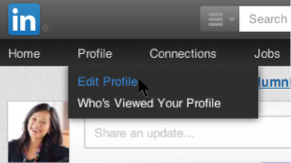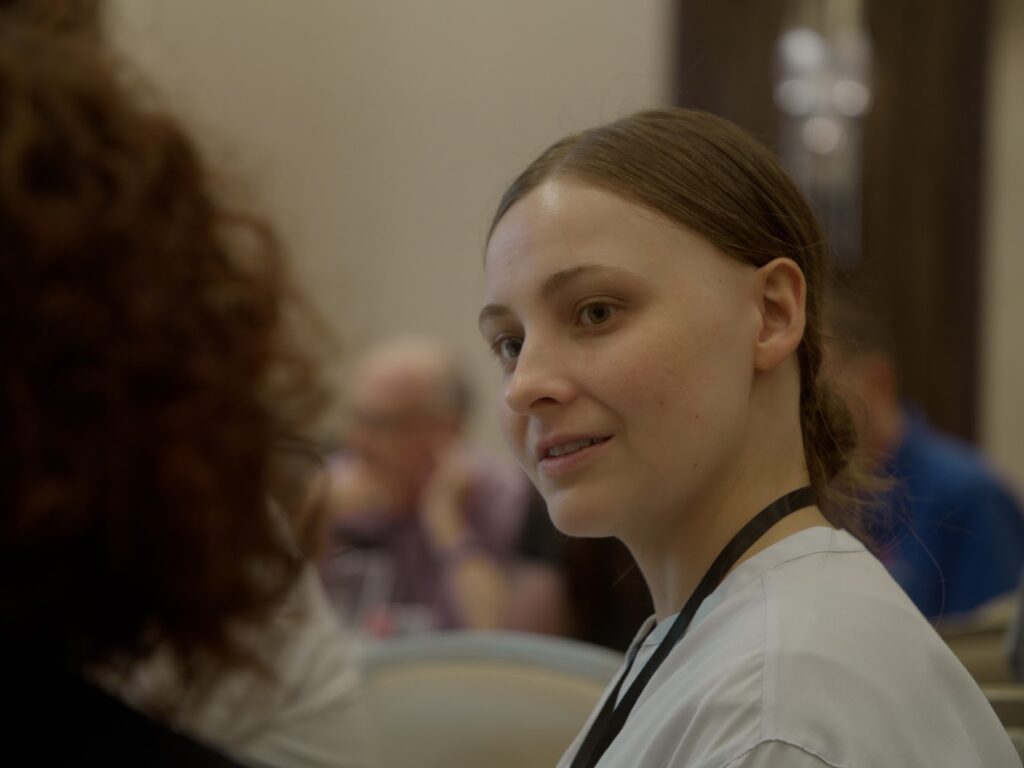December 12, 2014 / Esther Choy

Picture this. You are walking down a long aisle of chandeliers at Home Depot looking for one to take home. The holiday season is fast approaching and installing a new chandelier has been on your to-do list since January 2014. Suddenly, a stranger stops you in your tracks. He doesn’t exactly look like a complete stranger though. He looks like he could be your neighbor’s relative, or your high school acquaintance, or your colleague’s friend you met a long time ago.
As you puzzle over what to make of this person, he starts telling you about his bestselling line of light bulbs. He is a designer, supposedly a disruptive one. He claims to be the most creative and innovative thinker. He brags about his years of experience working with the biggest manufacturing companies. He claims to be smart and a hard worker, harder at working than anyone else in fact. He goes on and on.
At this point, you still have no idea who this person is, but he is still talking. In fact, he doesn’t seem to care if you care. You are now looking for the exit, or at least, the security guard.
This scenario doesn’t happen in everyday life very frequently. But it happens online all the time. LinkedIn users, unsuspectingly browsing potential contacts who might be one, two or three degrees removed from them, face barrages of familiar strangers making all kinds of bold claims about who they are and what they have done.
Crafting A LinkedIn Profile That Respects Your Audience
One of the very first things viewers see on LinkedIn is called the Profile Summary. Many profiles go on and on with professional data and no connecting theme. Worse, they don’t seem to care if their viewers care. In other words, the experience is not too dissimilar to a stranger yapping on and on at you about how great he is while you are in search of something else.
Ok, it is LinkedIn. The context is clear. Everyone is expecting others to market their experience and expertise. So why not get right to the point and start sharing professional data points?
Problem is everyone is doing it, and therefore, hardly anyone is standing out. Data, without context and theme, puts readers to sleep. The good news is, because most everyone is aimlessly sharing data points, it is easy to stand out. So, why not tell a good story in your LinkedIn profile summary?
Start with a Hook
A good story always has a salacious hook to engage the audience’s imagination and attention. In storytelling terms, your LinkedIn profile is the best place to provide a hook for viewers (aka potential employers, clients, or business partners). Yet, many profile summaries are either littered with big words like “disruptive strategist,” “proven innovator,” or boring job descriptions such as “I am responsible for…” without any hook, plot, character or insight.
But how do we change that? Take a look at these two different versions of a LinkedIN summary about the same exact person.
Version 1
“Marketing communications director, writer, editor, photographer. Drawing on more than 15 years experience developing and leading design and content teams, I set the strategies for multichannel communications and then implement them.”
Version 2
“I’m someone who does it all. I write, edit, photograph and design, and then spin the final product across multiple communication channels that achieve strategic goals.
I’m a bit unusual like that. Most communication professionals develop an expertise in one area, and then build on it. But I learned early on to be adaptable and to take advantage of every learning opportunity — whether writing for my college newspaper, working as a photojournalist in New York City, launching my own photography business or making a mid-career change into the marketing communications field.
Thanks to my varied background, I bring a nuanced understanding to the challenges faced by entrepreneurs and growing businesses, having faced many of those issues myself. I understand firsthand the importance of mastering new media and reaching customers where they live. I respect the absolute necessity of doing the most you can with limited resources. Most of all, I have learned how to build engagement and identify opportunities that can take your business to the next level.
Many entrepreneurs believe they can do it all, and I respect that spirit — I’ve walked a mile in those shoes. But there’s nothing like strategizing with a partner who can translate your vision across media in a multi-faceted way. My goal is to work with you and your business to develop content that resonates both visually and verbally — and then help you succeed in ways you haven’t even imagined.”
See the difference? In Version 1, he dumps data; in Version 2, he shares a professional story. In Version 1, he tells; in Version 2, he shows. In Version 1, he sounds just like everyone else; In Version 2, he feels distinct and special.
So, who is responsible for such drastic transformation?
 Rebecca Lindell is. I had the fortunate opportunity to meet this talented writer, editor and brand storyteller a few years ago. Immediately, I felt like she and I are intellectual sisters. Our mutual affinity for storytelling is obvious.
Rebecca Lindell is. I had the fortunate opportunity to meet this talented writer, editor and brand storyteller a few years ago. Immediately, I felt like she and I are intellectual sisters. Our mutual affinity for storytelling is obvious.
And what she can do for anyone’s LinkedIn profile summary jumped out at me. I invited her to help my team transform our individual summaries.
We are so glad that we did! And a month ago, I sat down with her and got her to share her secrets to writing a compelling profile summary. Here they are!
Six Steps for Crafting an Effective LinkedIn Profile
- Share one passion that connects your professional experience.
- Describe early interests in that passion.
- Why are you better at marrying this passion with a professional role than anyone else?
- What in your life path so far has make you different in that role? What is the value in having that difference?
- Give a brief example of a time/ experience that really allowed you to add value to your current role and the next role.
- Draw an overarching theme.
A common problem with many profile summaries (and many cover letters for job application as well) is that it restates the information viewers will soon read next. Many profiles use jargon, include generic statements, make assertions they won’t back up, and create a lot of empty promises with no proof points. With so many viewers making the same mistake, you can easily stand out when you follow her storytelling approach!
What’s Wrong with Executive Summaries?
When pressed with the question of “What’s wrong with an executive summary approach?” Rebecca feels (and I wholeheartedly agree) that things we remember most tend to be in a story format. Story makes emotional connections with readers.
An executive summary is a fine approach. Within LinkedIn profile summary formatting, however, users have quite a bit of space to weave a compelling story that is different and set them apart as an individual. It is a chance to let readers know who you are as a person. With an executive summary approach, you might fail to attract organizations and people who really resonate with your individuality.
Find Your Tribe
Last but not least, Rebecca encourages us to make it easier for our readers to find that “fit” or “tribe” by telling them a story. Make them feel that you care about them by sharing an important piece of who you are today as a professional. When you tell your story, it is not just about finding “A Job,” it’s about finding “THE Job.” It is about finding the right opportunity that resonates with you.
Besides, on LinkedIn the next candidate is just a click away.
So I would highly recommend you to take advantage of Rebecca’s generosity and sharing her secret to writing an engaging and inspiring LinkedIn Profile Summary. It could be one of the best gifts you give to yourself!
PS: Easier said than done. Rebecca has over twenty years of experience in journalism. As you give yourself the gift to craft a powerful story and you are stuck, contact her! Another great resource for drawing a theme to your career experience is a book entitled, “Body of Work” by Pamela Slim.
Related Articles
Tell Me About Yourself Example
Hook Your Audience’s Attention At Networking Events
#storyprompts #LettheStoryDotheWork #storytelling #BusinessCommunication #LeadershipStoryLab #communicationstraining #targetaudience #businesscommunicationtraining #managementcoaching #leadershipdevelopment #trainingleadershipskills #trainingmanagementskills #trainingeffectivecommunication #leadershipcoaching #effectivecommunicationtraining #managementskillstraining #leadershipskillstraining #leadershipdevelopmenttraining
Better Every Story
"This is an amazing and insightful post! I hadn’t thought of that so you broadened my perspective. I always appreciate your insight!" - Dan B.
Join the thousands who receive Esther Choy’s insights, best practices and examples of great storytelling in our twice monthly newsletter.


